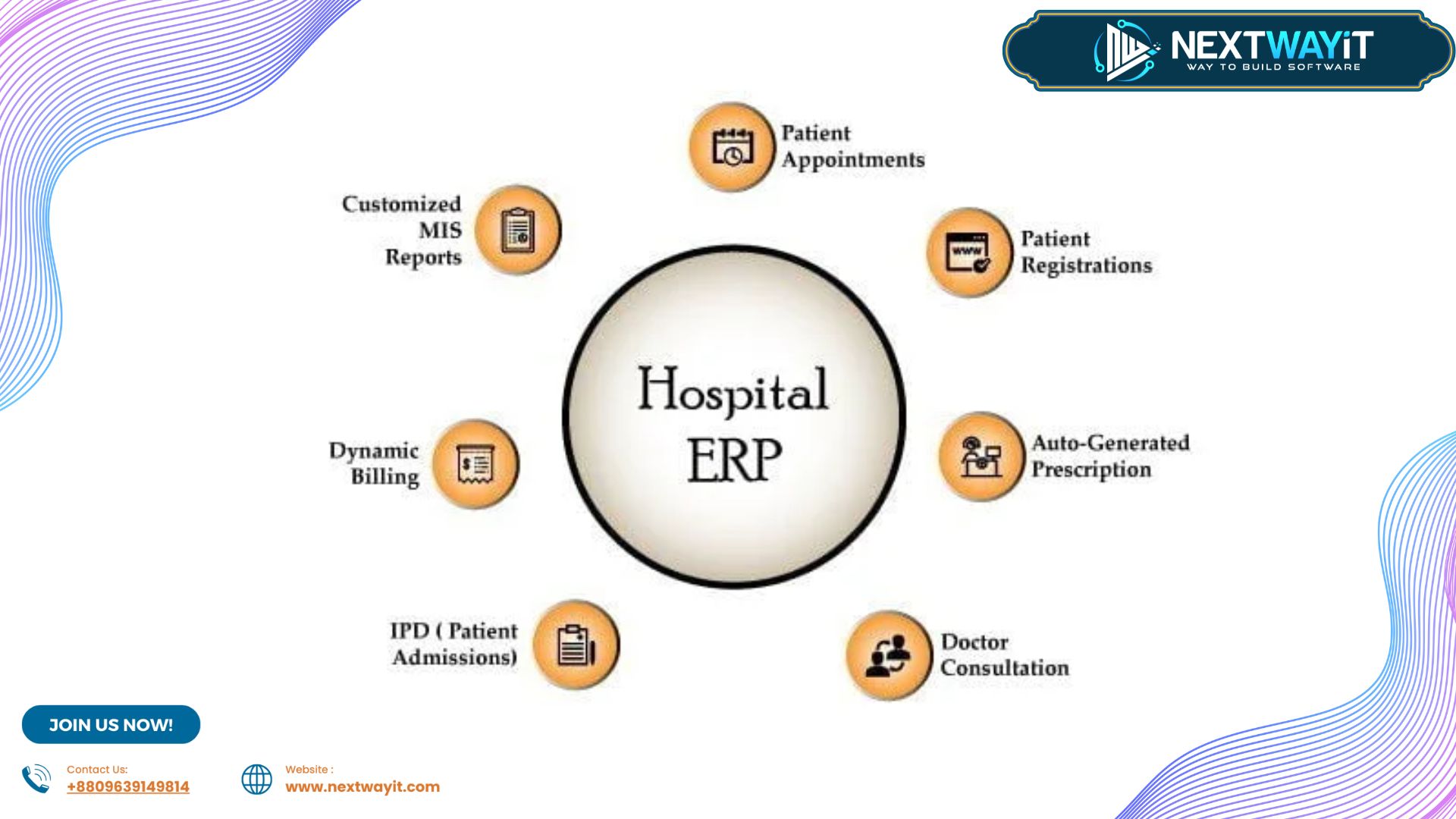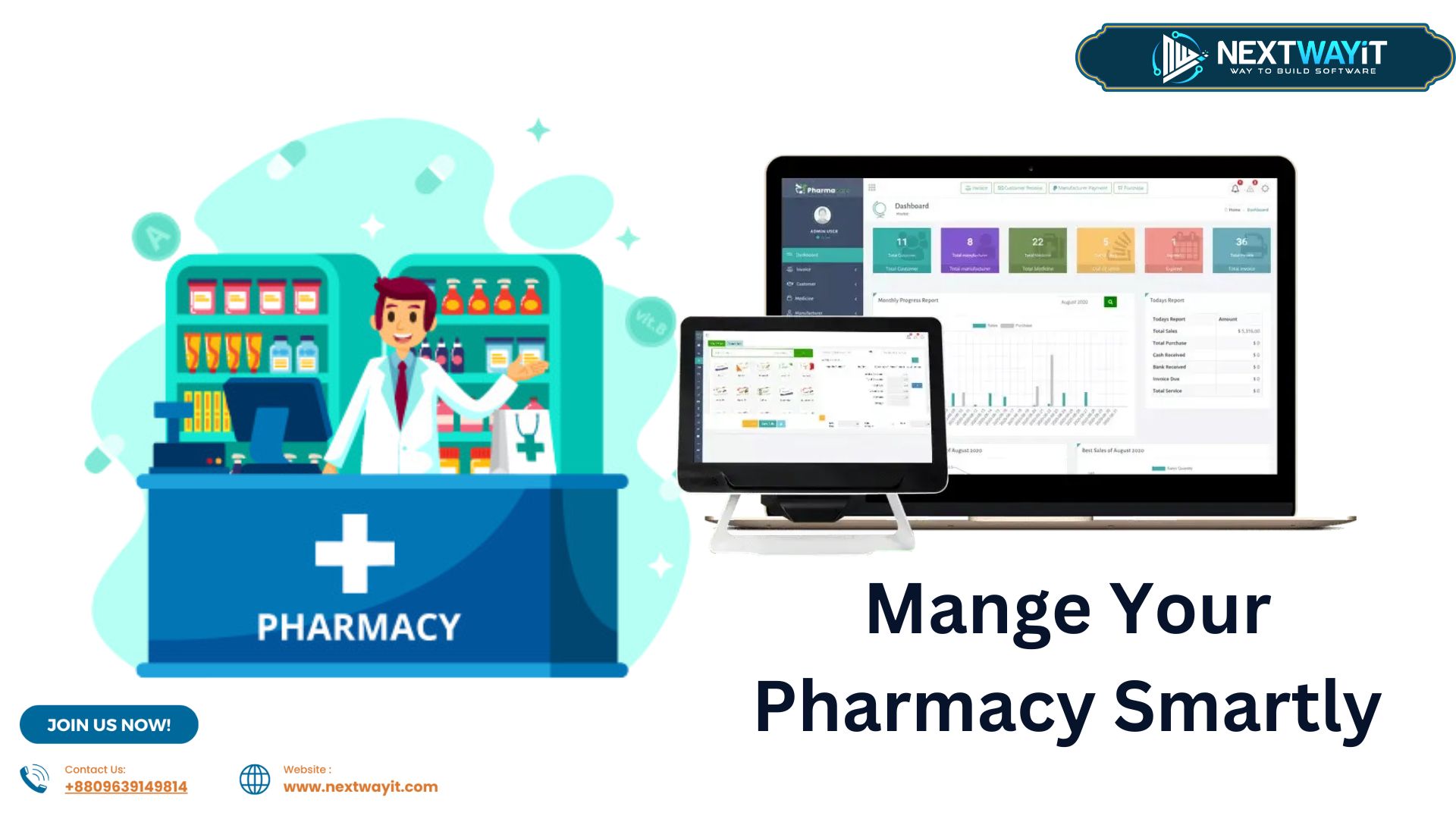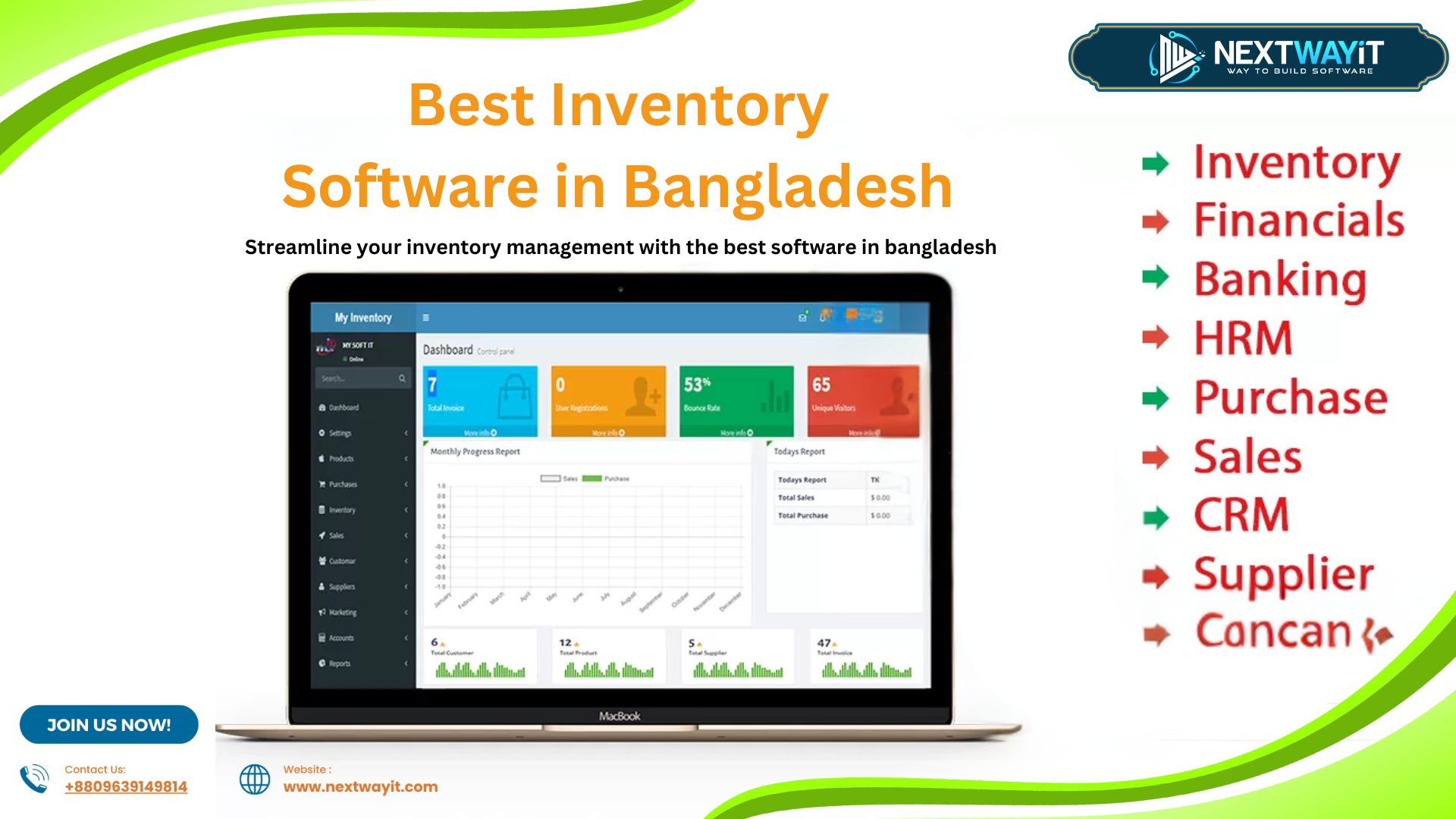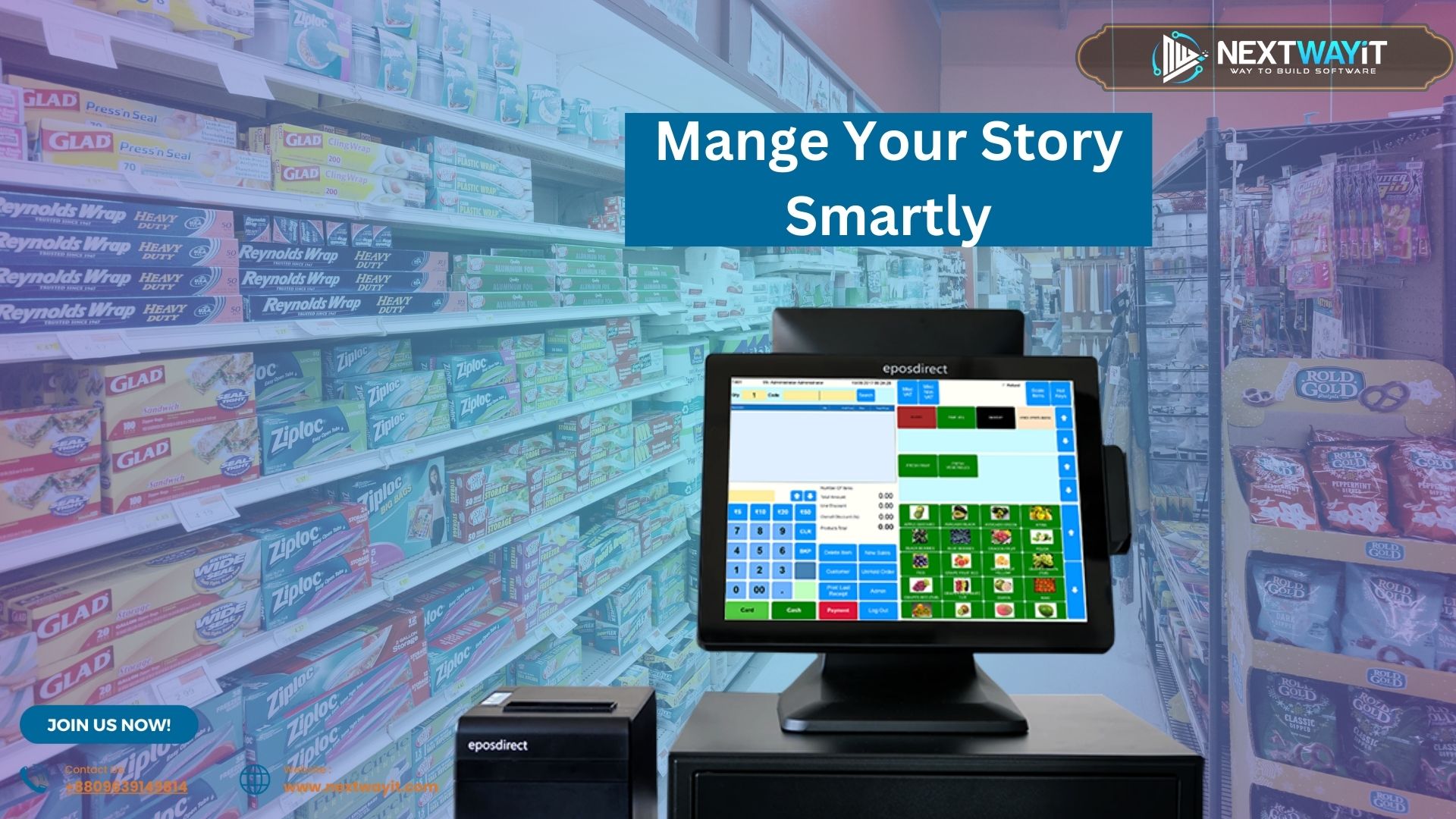
Why Use Hospital ERP Software?
In this article discuss about Why Use Hospital ERP Software?. In the fast-paced and highly regulated world of healthcare, the efficient management of resources, patient data, and administrative processes is crucial. Hospitals and healthcare institutions face the challenge of maintaining high standards of patient care while also managing costs, staff, and compliance. To meet these challenges, many healthcare providers are turning to Hospital ERP (Enterprise Resource Planning) software. This article will explore why hospitals should consider implementing ERP software, the benefits it brings, and how it can transform the way healthcare is delivered.
1. Streamlining Operations
One of the primary reasons to use Hospital ERP software is the ability to streamline operations. Hospitals are complex organizations with numerous departments, each requiring specific tools and processes. ERP software integrates all these functions into a single system, allowing for seamless communication and coordination across departments. This integration reduces duplication of effort, minimizes errors, and ensures that all parts of the hospital are working towards the same goals.
2. Improved Patient Care
Patient care is the cornerstone of any healthcare institution, and Hospital ERP software directly contributes to enhancing the quality of care provided. By having real-time access to patient information, healthcare providers can make more informed decisions, reducing the risk of errors. ERP systems also support better management of patient records, ensuring that critical information is always up-to-date and accessible when needed. This leads to improved patient outcomes and higher satisfaction rates.
3. Efficient Resource Management
Hospitals must manage a vast array of resources, from medical supplies to staff schedules. Without proper management, these resources can quickly become a bottleneck, leading to inefficiencies and increased costs. Hospital ERP software provides tools for managing these resources effectively, ensuring that the right resources are available when needed. This includes everything from inventory management to staff scheduling, helping hospitals optimize their operations and reduce waste.
4. Compliance and Reporting
The healthcare industry is subject to strict regulations and reporting requirements. Hospitals must ensure that they are compliant with all relevant laws and standards, which can be a daunting task without the right tools. Hospital ERP software helps institutions stay compliant by automating many of the processes involved in tracking and reporting on compliance. This reduces the risk of non-compliance and the associated penalties, ensuring that the hospital remains in good standing with regulatory bodies.
5. Financial Management
Managing the financial aspects of a hospital is a complex and challenging task. Hospital ERP software provides comprehensive financial management tools that help healthcare institutions manage their budgets, track expenses, and ensure that they are operating within their financial means. By providing real-time financial data, ERP systems enable hospitals to make informed financial decisions, reducing the risk of overspending and ensuring that funds are allocated where they are needed most.
6. Enhanced Communication
Effective communication is critical in a hospital setting, where the timely exchange of information can be the difference between life and death. Hospital ERP software facilitates better communication between departments, staff, and even patients. By providing a centralized platform for communication, ERP systems ensure that everyone has access to the information they need when they need it. This leads to faster decision-making, improved coordination, and ultimately better patient care.
7. Scalability
As hospitals grow, their needs and requirements change. Hospital ERP software is designed to be scalable, allowing institutions to expand their operations without outgrowing their software. Whether a hospital is adding new departments, expanding its services, or opening new locations, ERP software can accommodate these changes, ensuring that the institution can continue to operate efficiently and effectively.
8. Data Security
The security of patient data is of paramount importance in healthcare. With the increasing threat of cyberattacks and data breaches, hospitals must take proactive steps to protect sensitive information. Hospital ERP software provides robust security features that help protect patient data from unauthorized access and ensure compliance with data protection regulations. By centralizing data and implementing strong security measures, ERP systems help hospitals safeguard their most valuable assets.
9. Improved Decision-Making
Finally, one of the most significant benefits of Hospital ERP software is its ability to support better decision-making. With access to real-time data and advanced analytics tools, hospital administrators and healthcare providers can make more informed decisions, leading to better outcomes for patients and the institution as a whole. Whether it’s deciding on resource allocation, patient care strategies, or financial planning, ERP software provides the insights needed to make the best possible decisions.
9. Patient Satisfaction and Engagement: Building Stronger Relationships
In an increasingly competitive healthcare environment, patient satisfaction is a key differentiator that can have a significant impact on a hospital’s reputation and financial performance. Hospital ERP software plays a crucial role in enhancing patient satisfaction by streamlining processes, improving communication, and providing patients with the tools they need to take an active role in their care.
One of the primary ways that ERP software improves patient satisfaction is by reducing wait times and ensuring that patients receive timely care. By optimizing scheduling, resource allocation, and patient flow, ERP systems help hospitals to minimize delays and provide a smoother, more efficient patient experience. This not only improves patient satisfaction but also reduces the risk of complications that can arise from long wait times, such as worsening conditions or increased anxiety.
In addition to improving the efficiency of care delivery, Hospital ERP software also enhances the patient experience by providing convenient access to information and services. Many ERP systems include patient portals that allow patients to view their medical records, schedule appointments, and communicate with their healthcare providers from the comfort of their homes. This level of convenience is particularly important in today’s digital age, where patients expect the same level of service and accessibility from healthcare providers as they do from other industries.
Moreover, by enabling better communication and collaboration among healthcare providers, ERP systems ensure that patients receive coordinated, high-quality care. This holistic approach to patient care not only improves outcomes but also fosters stronger patient-provider relationships, leading to higher levels of patient engagement and satisfaction.
Conclusion
Hospital ERP software is more than just a tool for managing day-to-day operations; it is a strategic asset that can transform the way hospitals deliver care, manage resources, and achieve their goals. By streamlining processes, enhancing patient care, optimizing resource management, ensuring compliance, and driving data-driven decision-making, ERP systems empower hospitals to navigate the complexities of modern healthcare while remaining financially sustainable and focused on patient outcomes.
In an era where healthcare demands are continually evolving, Hospital ERP software provides the flexibility, scalability, and innovation needed to meet these challenges head-on. For hospitals looking to improve efficiency, enhance patient care, and stay competitive in an increasingly complex industry, investing in a robust ERP system is not just a smart decision—it is an essential one.



